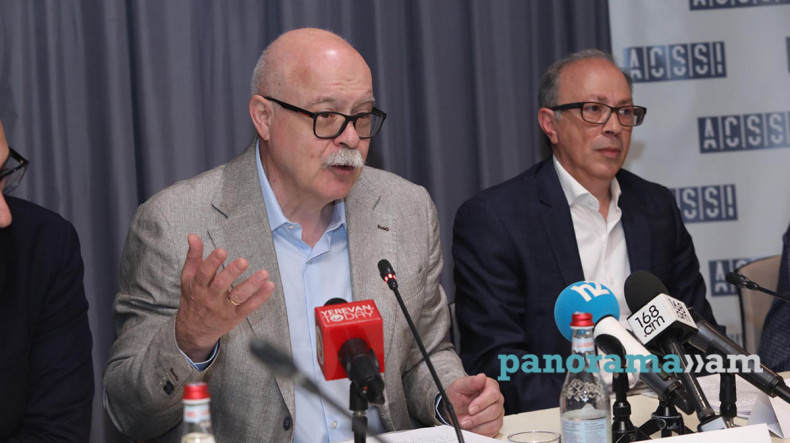
Russian expert: CSTO showed its ‘weaknesses’ in Nagorno-Karabakh conflict
The Collective Security Treaty Organization (CSTO) was viewed by many as either a version of the Warsaw Pact or an alliance countering NATO, claims Dmitry Trenin, a Russian research professor at the Higher School of Economics and a leading research fellow at the Institute of World Economy and International Relations (IMEMO) in Moscow.
“In fact, the CSTO is not a well-researched organization, despite its quarter-century of existence,” he told a debate featuring prominent Armenian and Russian experts on Wednesday.
"This is neither a union or a bloc, but rather a military-political association with protocols on many issues that are not quite clear,” Trenin opined.
According to him, the only genuine ally of Russia in the military and political sphere is Belarus, while the position of the other CSTO countries is multi-vector.
“When it comes to the Nagorno-Karabakh conflict, I guess the CSTO showed the weaknesses embedded in it and the uncertainties that once benefited the existence of this association, and then, when the situation escalated, they manifested themselves in all their glory,” the expert said.
He added that Russia does not impose its position within the CSTO, highlighting the neutral stance of its member states on the Ukraine conflict.
“None of the CSTO countries, including Belarus, has recognized Crimea's incorporation into the Russian Federation. Russia, of course, isn’t happy about it, but it does not push for it,” Trenin noted.
Newsfeed
Videos






























